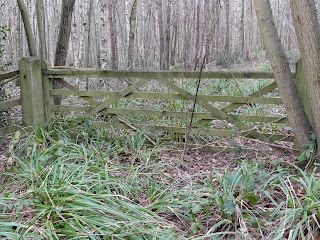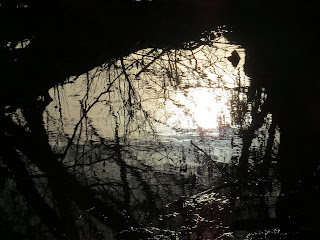Temple Balsall had a snowdrop event on Sunday 11th February which I was hoping to visit but at the moment there are so many roads closed on the route mainly due to HS2 work and that weekend both the M42 and A452 were closed as well while a bridge was being demolished and another road was shut due to flooding. Consquently I abandoned the idea! but D and I did visit Temple Balsall on a later day in the same week.
There were snowdrops to be seen everywhere - in the car park, in the churchyard, along the Bread Walk and in a wood by the cemetery.
I love Temple Balsall as its just steeped in history and has such a special atmosphere. It takes its name from the preceptory of the Knights Templar that was founded there c1150. In 1312 when the Templars were disbanded the estate passed to the Hospitallers who retained the land until 1541 at the Dissolution. Two grand-daughters of Robert Dudley, Earl of Leicester, bequeathed money to the area. Lady Anne Holborne (died 1663) left money for the church to be repaired and an endowment for the minister. Lady Katherine Leveson (died 1674) endowed the Hospital and the school.
Temple House was a house built in 1740 and was used by the governors of Lady Leveson's hospital - a Francis Smith and William Smith II.
The graves in the foreground belong to the Dames which was the name given centuries ago to the ladies who lived in the almshouses (hospital).
St Mary's was repaired in the C17th and restored by George Gilbert Scott in 1848/9. Does the church date back to the Hospitallers or the Templars? Pevsner says that using historical evidence it has been suggested it was built by the Hospitallers c1320 or later but stylistically it is likely to belong the the later C13th and the Templars.
The church is now open until 2.30 pm each day - sadly we were just a bit too late to find it open. Its a church I really do need to revisit to get better photos of the interior.
Snowdrops are also known as Candlemas Bells, The Purification flower, Fair Maids of February and Snow Piercer.
Research suggests that they were introduced to Britain in the C15th by Italian monks. They are not a native British plant and those seen in the wild would be garden escapees or planted. They are now naturalised and found in woods and near streams throughout Britain. Snowdrops are able to survive winter weather, frosts and snow as they contain antifreeze proteins that stop crystals that would damage the cells forming. The flowers provide welcome nectar for early emerging bees.
In the Language of Flowers snowdrops represent hope, purity, humility, virgin innocence and gratitude. They are often found in churchyards and monastery gardens as they were grown for the Purification of the Virgin Mary, the Feast of Candlemas, on 2nd February each year.
The Old Hall was encased in brick in the C19th and inside there are the hidden remains of a late C12th aisled hall which belonged to the preceptory.
After wandering round the churchyard and garden at the Old Hall we walked along the Bread Walk, past a stream, to a wood. Snowdrops and a few primroses were growing on the grass at the side of the path.
The small wood which is on the Green Man Trail was full of snowdrops.
Walking past the church again on our way back to the car park.
I am sure this sign is new and its of great interest because when we visited last August and walked all round the area I saw this particular grave in the churchyard and wondered then if there was a connection.
(The two photos of the grave were taken last August)
Old barn by the car park.
We briefly called into the farm shop at Balsall Common on the way home.
Reference:
"The Buildings of England Warwickshire" by Chris Pickford and Nikolaus Pevsner, Yale University Press, 2016.
"Britain's Wildflowers: A Treasury of Traditions, Superstitions, Remedies and Literature" by Rosamond Richardson.
All photos taken by me with the Panasonic Lumix FZ330 bridge camera. (I don't particularly rate my photos but if anyone wishes to use one I would be grateful for an email first - thanks).
































































